‘People Who can Endure the Psychological Conditions of the Country can Participate in Civil Society Activities’
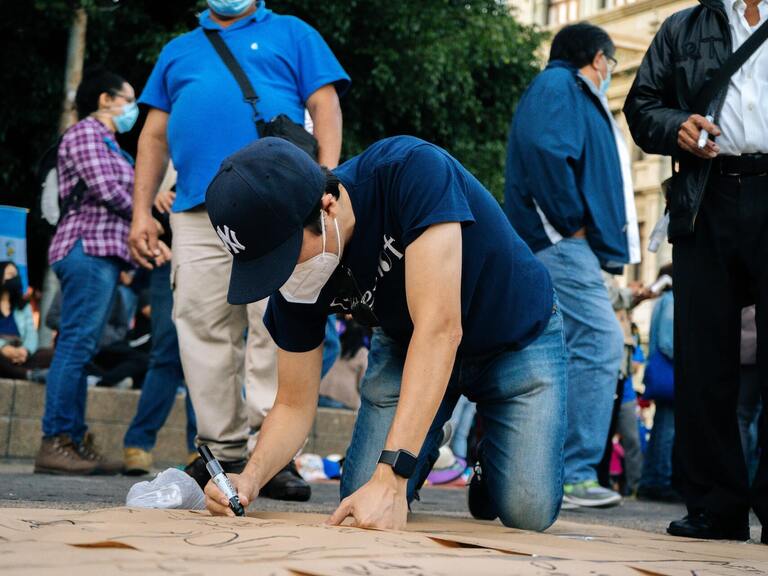
As the Civil Society and Media Studies Association, we have announced the ‘Future of Civil Society’ report, which comprehensively evaluates the current situation of non-governmental organizations (NGOs). With this report, we aimed to identify problems, develop capacity, increase influence, raise awareness, and present a future perspective with solutions. Daktilo1984 team talked about the Future of Civil Society report with Researcher Nezih Onur Kuru, who contributed to the project.
Could you tell us a little about your work in the report titled The Future of Civil Society?
In our research within the scope of the Future of Civil Society project, we tried to see the needs and motivations of civil society. In this framework, we followed both quantitative and qualitative methods. On the quantitative side, we interviewed a total of 552 participants from 79 provinces. We divided 552 different non-governmental organizations into seven groups, according to their founding purposes and member activities, as citizens, patrons, philanthropists, advocates, self-organizers, specialists and professional sector-oriented institutions. In addition, the ideological identity that these groups express themselves is an important factor for us. There are 110 conservative organizations, 160 secular organizations, and mixed organizations with both secular and religious people. These are 282 organizations. In addition, we tried to put forward a causal story by conducting in-depth interviews with 55 people. In these interviews, we asked the participants 27 questions under 3 main headings. These titles are civil society, democratic rights, political participation, freedom of expression, freedom of association and civil society capacity. In this way, we conducted a wide and in-depth research. There has been extensive research to see the need and motivation in civil society.
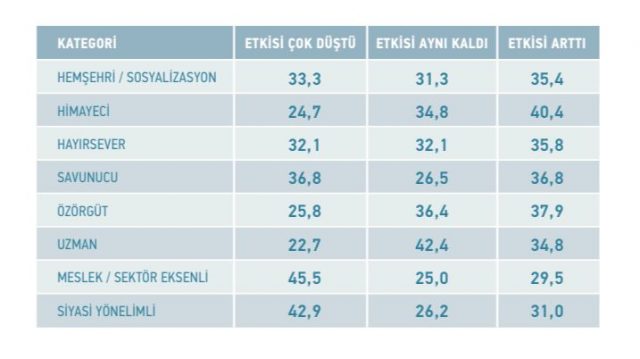
On the one hand, we are getting out of the 2016 state of emergency atmosphere. Because the state of emergency is over. However, together with the Presidential Government System, authoritarian practices continue.
Are non-governmental organizations promising today? What about the trust in non-governmental organizations?
There is confusion in all groups regarding NGOs in general. Because, in the field of civil society in Turkey, a crisis of confidence arose in the remaining non-governmental organizations, especially due to the fact that many non-governmental organizations were closed within the scope of the State of Emergency practices implemented after the coup attempt on 15 July 2016. There was a climate of fear, and the gradual deepening of the economic crisis was a factor that could have a negative impact on resources and motivation, but we observe that we are getting out of the 2016 state of emergency atmosphere. Because the state of emergency is over. However, with the Presidential Government System, authoritarian practices continue. Therefore, we presented a fragmented image. In the picture we encountered in this study, there are those who agree that the influence of civil society has decreased in all groups, there are those who say it has remained the same, and there are those who say that its influence has increased. In general, those who are less politically oriented, such as charitable organizations, private organizations, or fellow citizens’ organizations, have a more heterogeneous image, while those who say that their influence has decreased among those with a political orientation and those with a professional-sector axis stand out a little more, but still do not exceed 50%. At the end of the day there is a partly cloudy image.
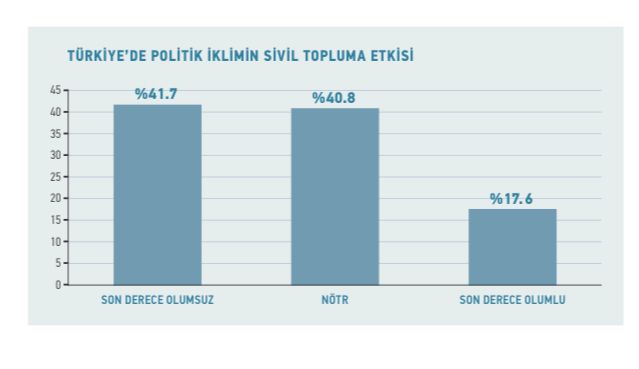
More than 67% of the participants felt moderate or high levels of anxiety, while their stress level reached 72%.
What are the aspects that organizations have in common and differ from each other?
We tried to measure the emotional and motivational status of non-governmental organizations. While more than 67% of the participants feel moderate or high level of anxiety, the stress level reaches 72%. In this case, it is obvious that the activity rate has also decreased. In the table I just described, those who say that the level of activity remained low due to the shrinkage of the civil society area after 2006 and the decrease in its resources due to the economic crisis reaches 79%. These stand out as the common point of access. Apart from negative issues, the image is much more positive in terms of motivation. Despite all these negative factors, civil society actors say that their motivation is high. The rate of those who feel moderate or high level of motivation reaches 92%. Despite everything, we see that the participating actors still maintain their motivation. There are also points of divergence. There is a partly cloudy atmosphere that institutional capacity in civil society is changing. Although those who say that it decreased are in the majority, it still does not exceed 50% and this time it remains at 49%. There is a 50% split in dialogue and cooperation. In terms of effectiveness, there is a low rate of finding activity, which remains at 47%. Medium and high ones are close to about 54%. In short, there is a divergence in the impact of non-governmental organizations on these topics. Here, I can say that institutions that are more political and more engaged in economic life are a little more pessimistic about these issues. Because political and economic changes are directly affecting their sphere of influence. However, there is a slightly more positive atmosphere in areas that are indirectly affected by the political and economic sphere, be it fellow-citizen associations, environmental organizations or self-advocacy movements, institutions, and where participation is less likely to face any legal sanction.
The younger age group does not see a viable vision as they socialize in an already oppressive environment.
What is the source of motivation of non-governmental organization employees?
Emotional satisfaction and self-actualization stand out as factors affecting all segments in general, but we observe that as age decreases, the motivation for the impact of civil society on society decreases. This may be due to: First, the socialization we are in according to age is important. For example, voters over 30 or participants over 50, civil society was more active in the 2000s or 1990s, when Turkey was relatively free from the current situation. As they played an active role at that time, they were aware of the potential of civil society and thought it could be realized, but the younger age group does not see a viable vision as they are already socializing in an oppressive environment. In our study, we also saw that relatively more utilitarian and more rational motivations came to the fore. We also noticed this in face-to-face in-depth interviews. The motivation to benefit comes to the fore. Rather than just big goals like changing society, that is, activism; short-term, self-related motivations such as the feeling of togetherness come to the fore. Spirituality and religious motivations are one step behind, especially rights advocacy. Here, we see that the participants are motivated to do something good, and a philanthropic behavior has taken place, replacing the traditional philanthropists.
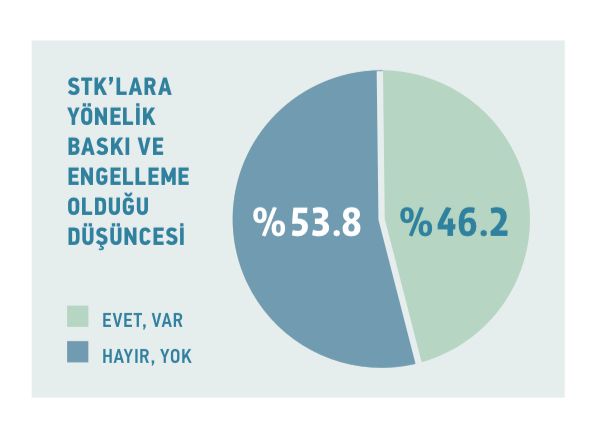
When asked about their experience of being overwhelmed, 63% say that it never happens, that is, the rate of those who are overwhelmed by civil society activities is very low, but the rate of anxiety and stress is very high. This shows that people who can handle the psychological conditions of the country can participate in civil society activities.
How do you see the future of NGOs?
People in NGOs generally participate in these activities with their motivation. For example, when asked about their experience of being overwhelmed, 63% say that it never happens, that is, the rate of those who are overwhelmed by civil society activities is very low, but the rate of anxiety and stress is very high. This shows that people who can handle the psychological conditions of the country can participate in civil society activities. There is a difference here between the general picture of society and the profile of the participants. In order to expand participation, the improvement of legal, political and economic conditions in the society and the removal of obstacles are prerequisites. In addition, if we focus on the internal problems of civil society, the resource problem in general is at the forefront. Solving the resource problem again depends on economic conditions. The economic crisis is very effective here. At the same time, the prevalence of civil society awareness depends on the conditions of the country, as well as the fact that people provide financial resources to these institutions and that they are also resources as active participants. Frankly, I take a slightly broader view. At the same time, we can say this: Turkey has a very high level of polarization. When we look at the general population samples, that is, when we leave the civil society samples and return to the general population, we see that political participation is one step ahead. It is as if there is a struggle for existence in society. Because of this deep polarization, we had to separate secular and Islamic while we were examining it. If polarization decreases, individuals can participate in civil society with more pragmatic motivations in areas that touch the problem areas in their own environment or in their own lives. At the same time, since the risks of non-political ties will be less, I think that progress can be made in cooperation and joint action, but I think it largely depends on Turkey’s political and economic conditions.
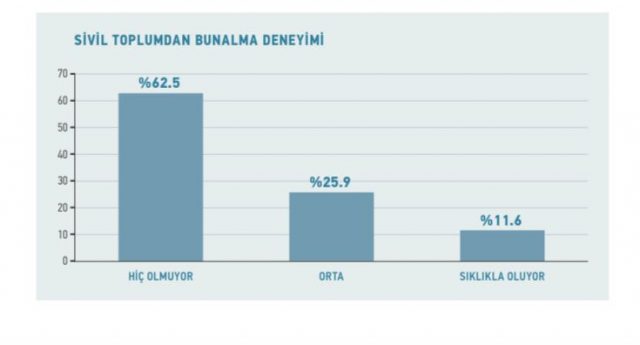
Photograph: Shalom de León
Click here to access the report summary.
*This content has been prepared in collaboration with Daktilo1984 and the Future of Civil Society Project.

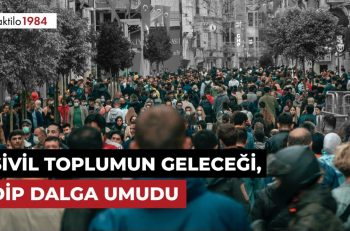
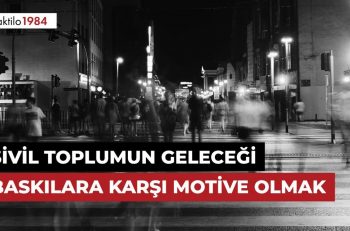



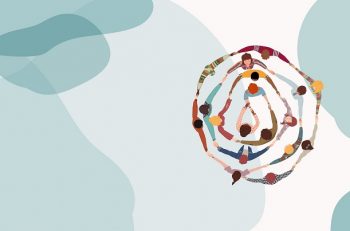
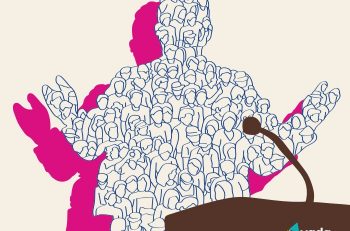
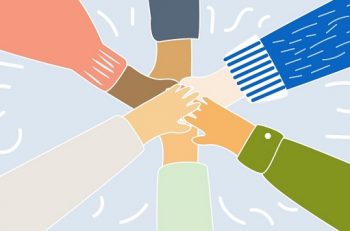

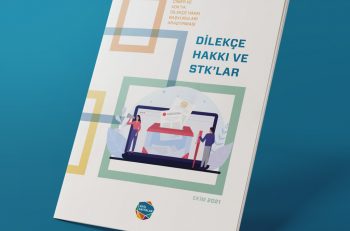
Bizi Takip Edin